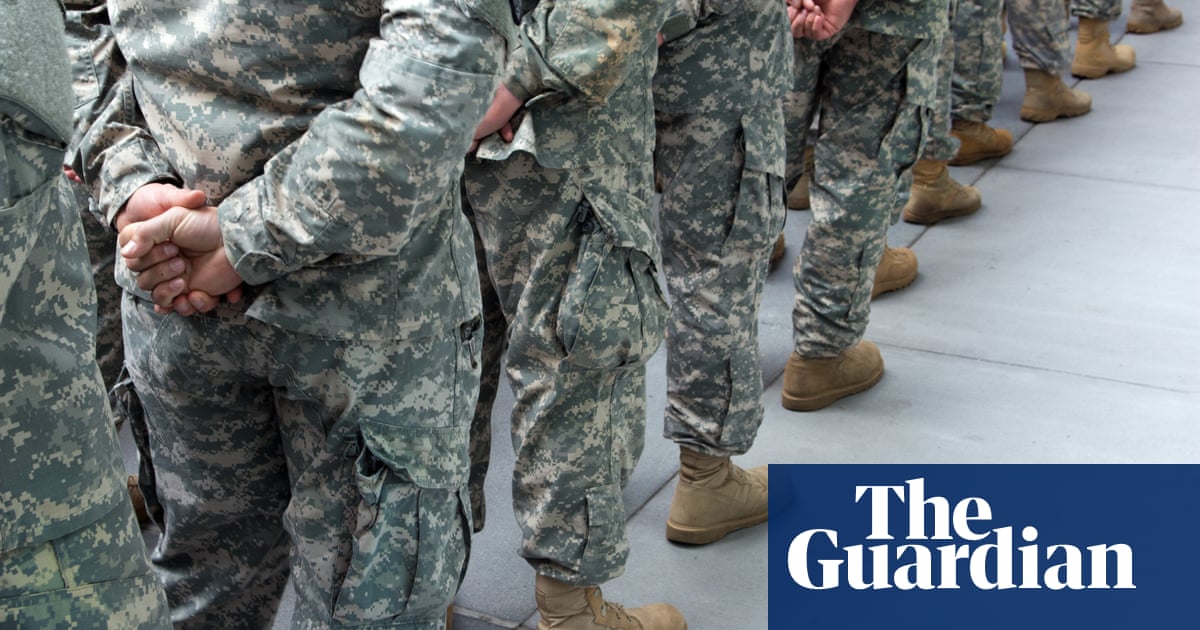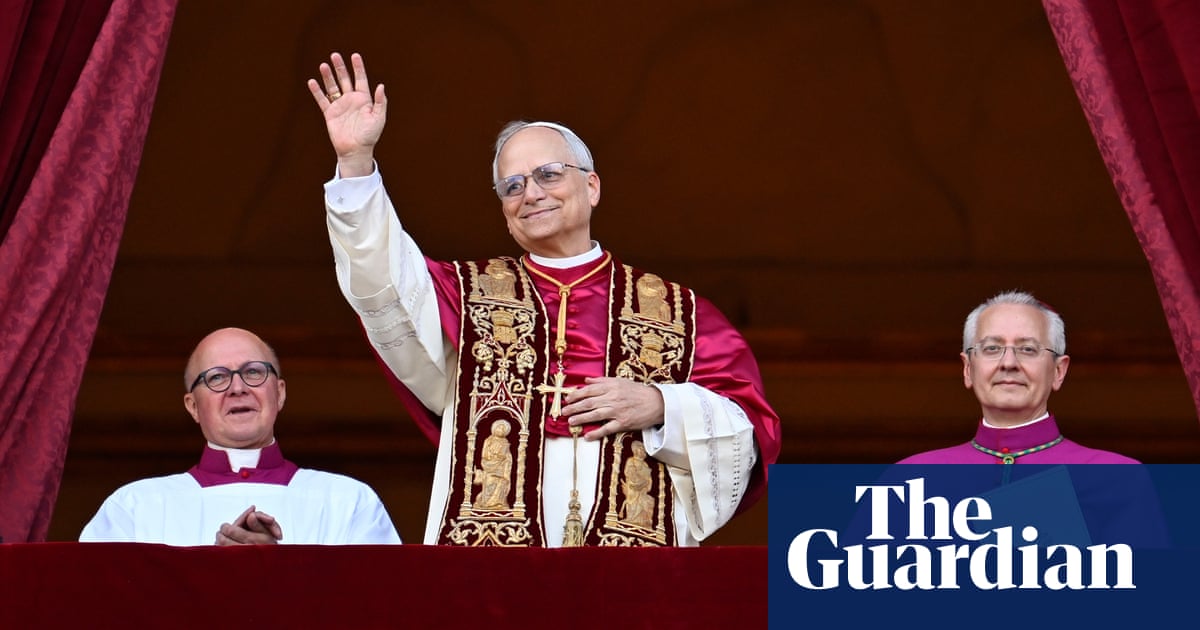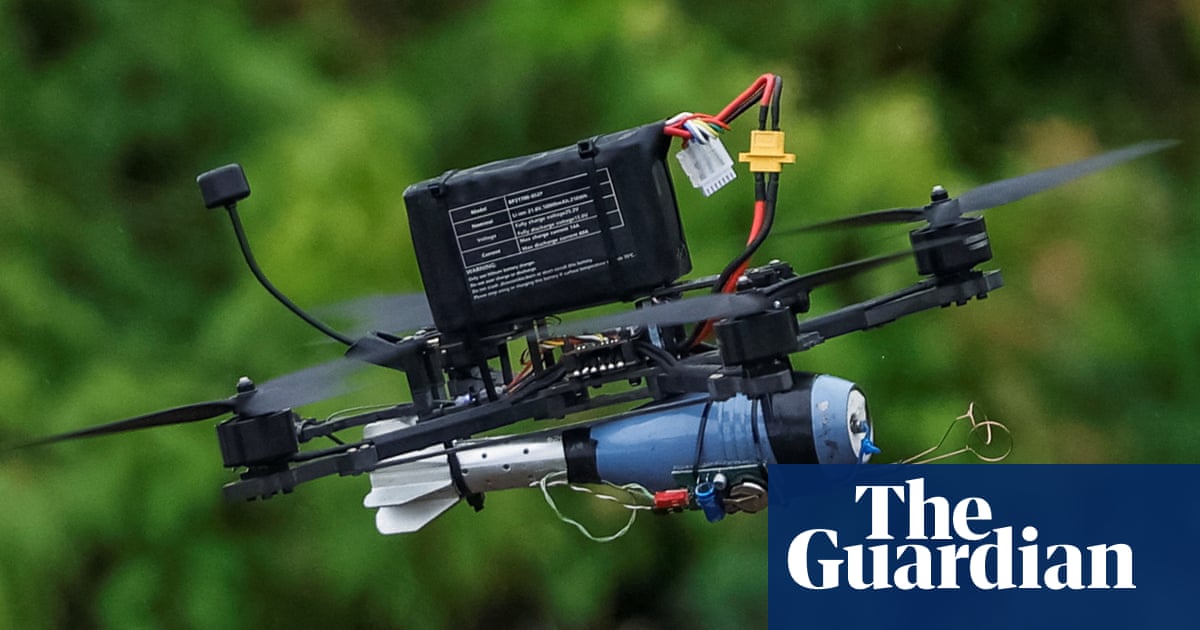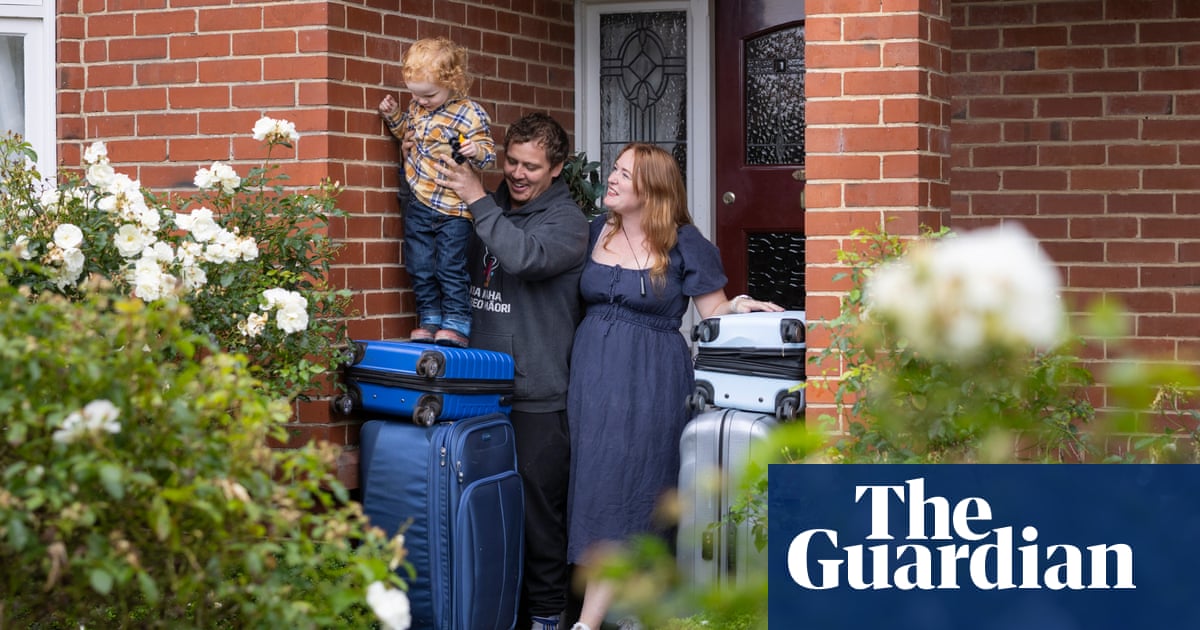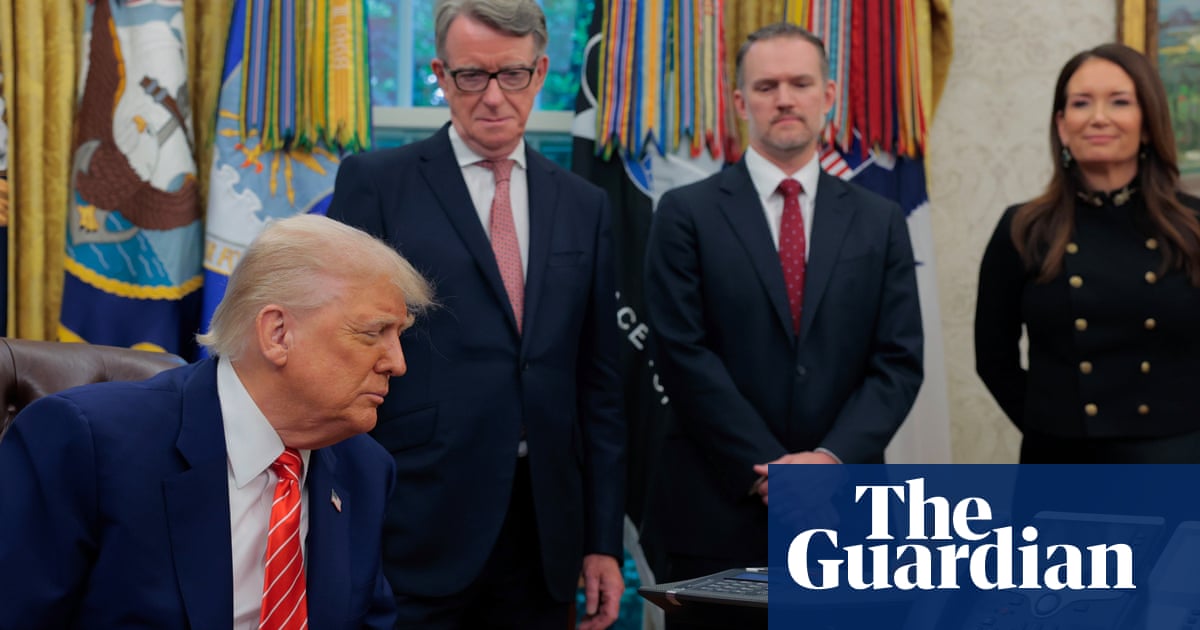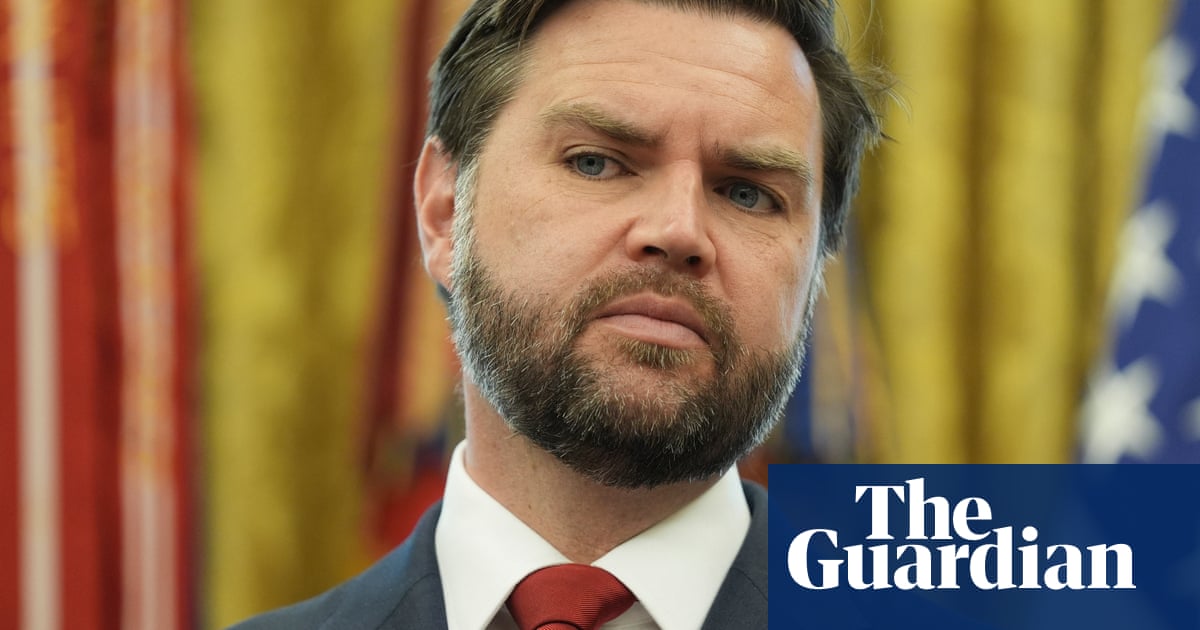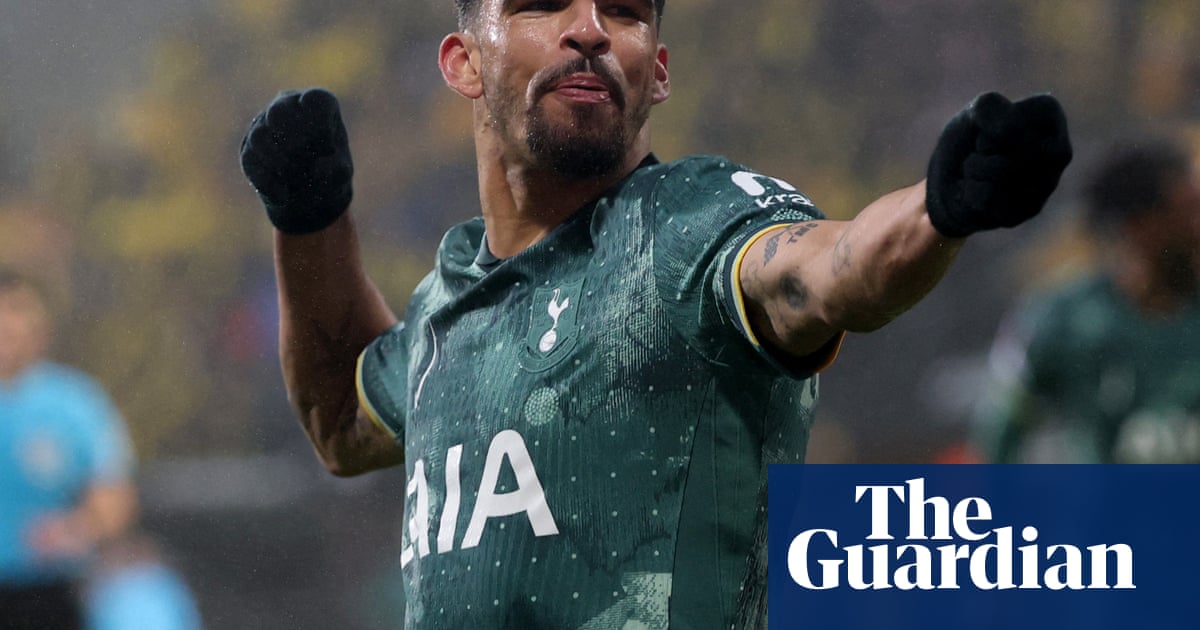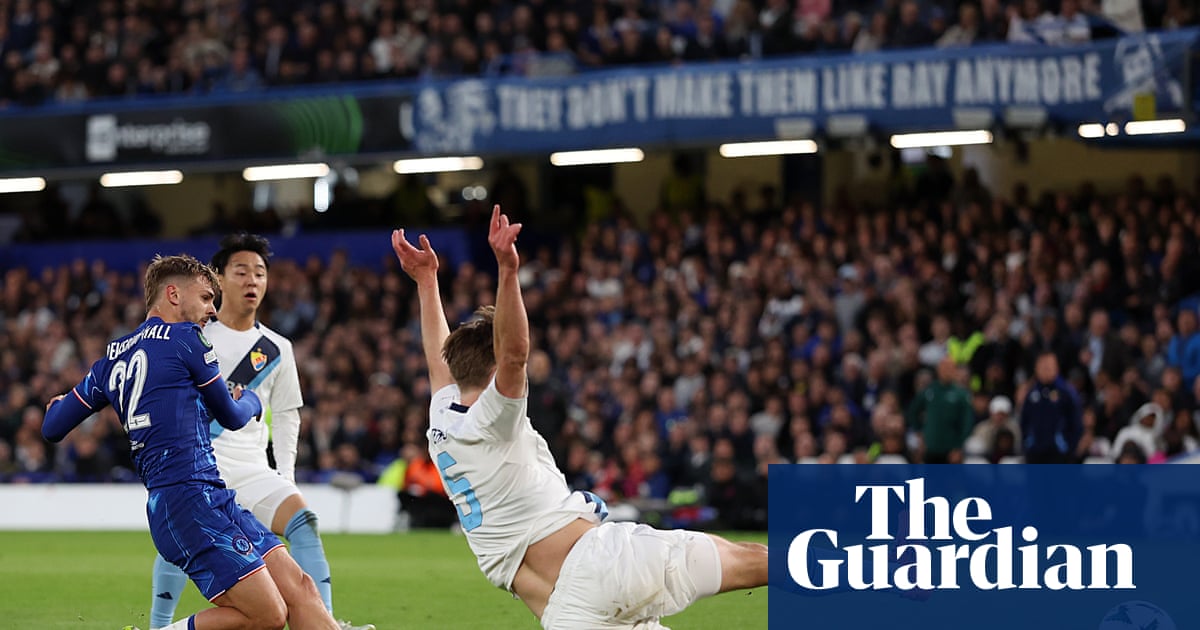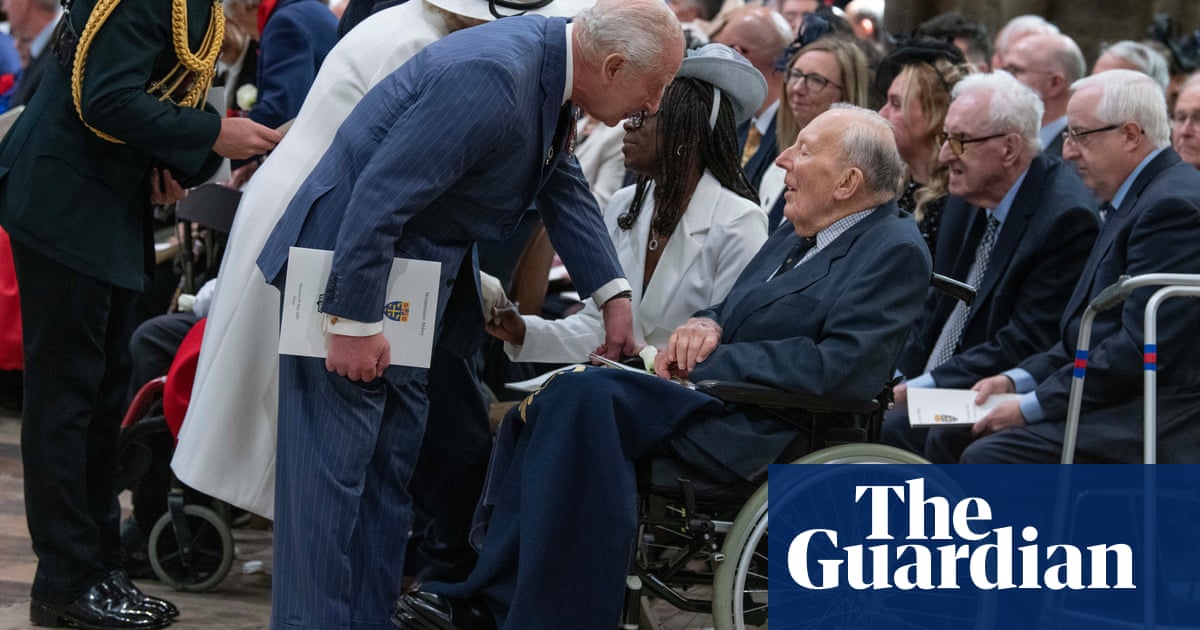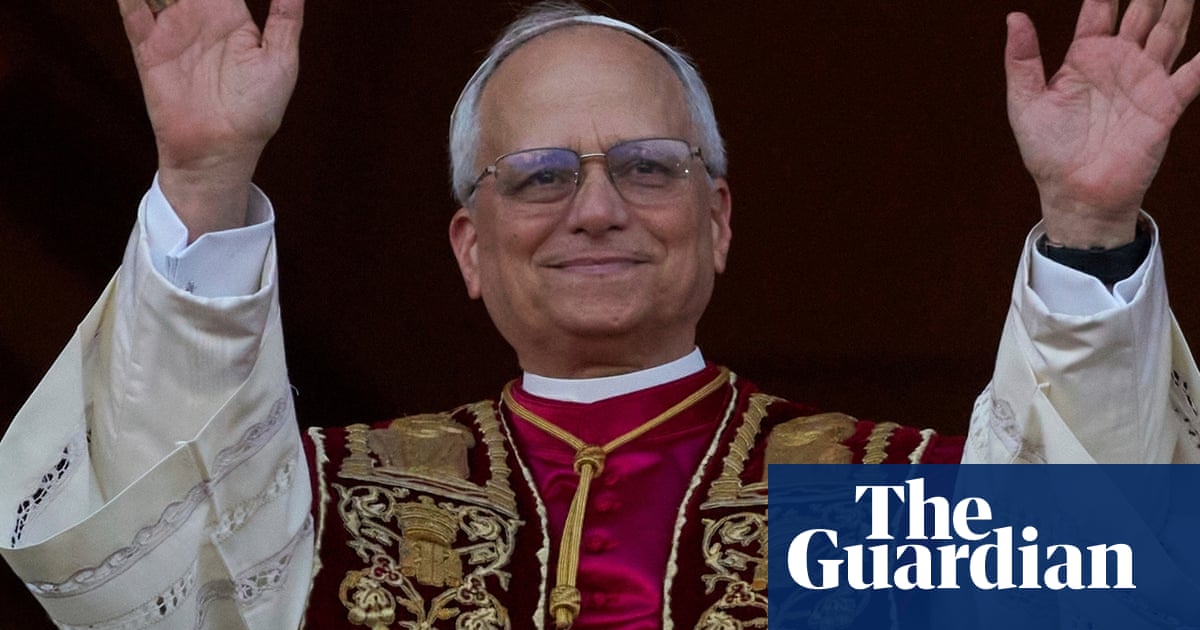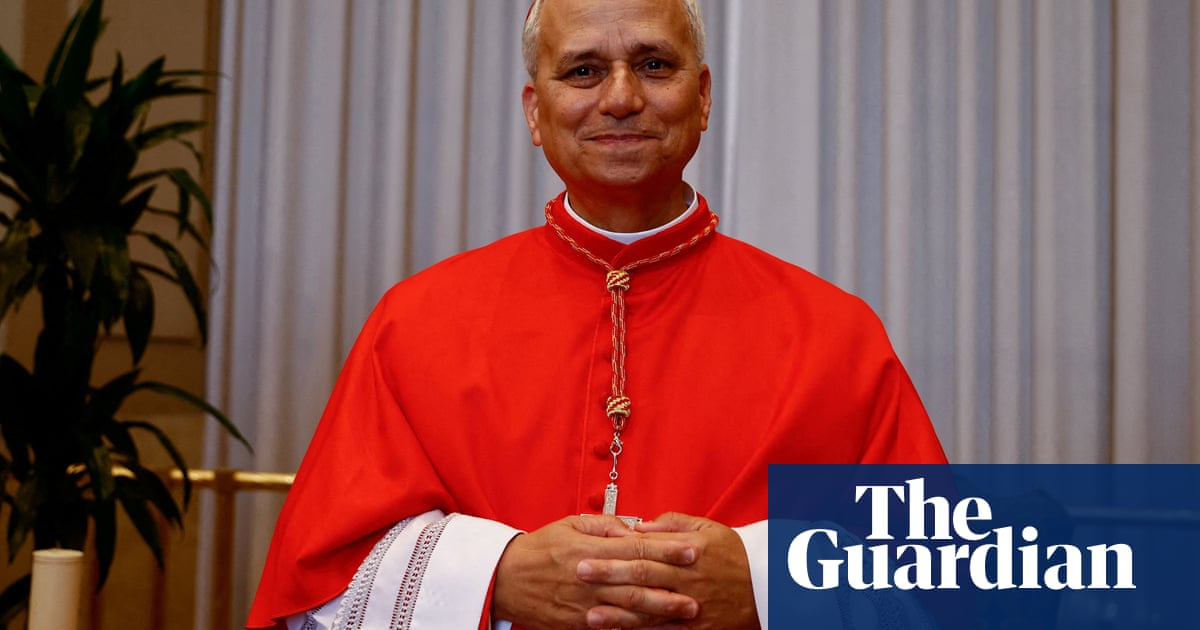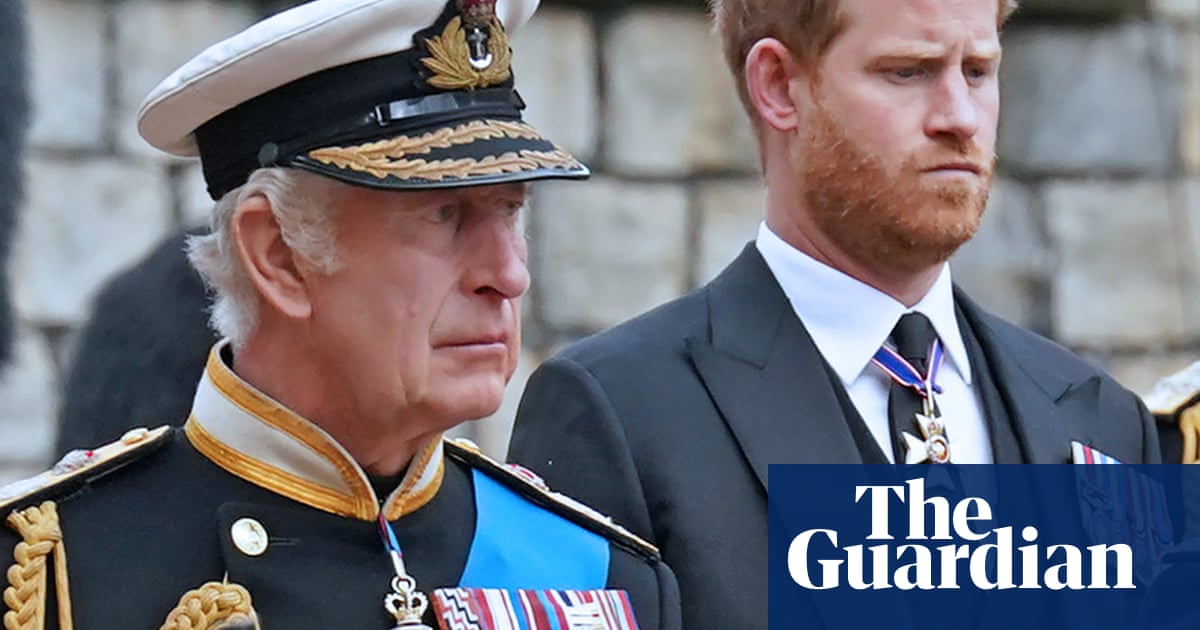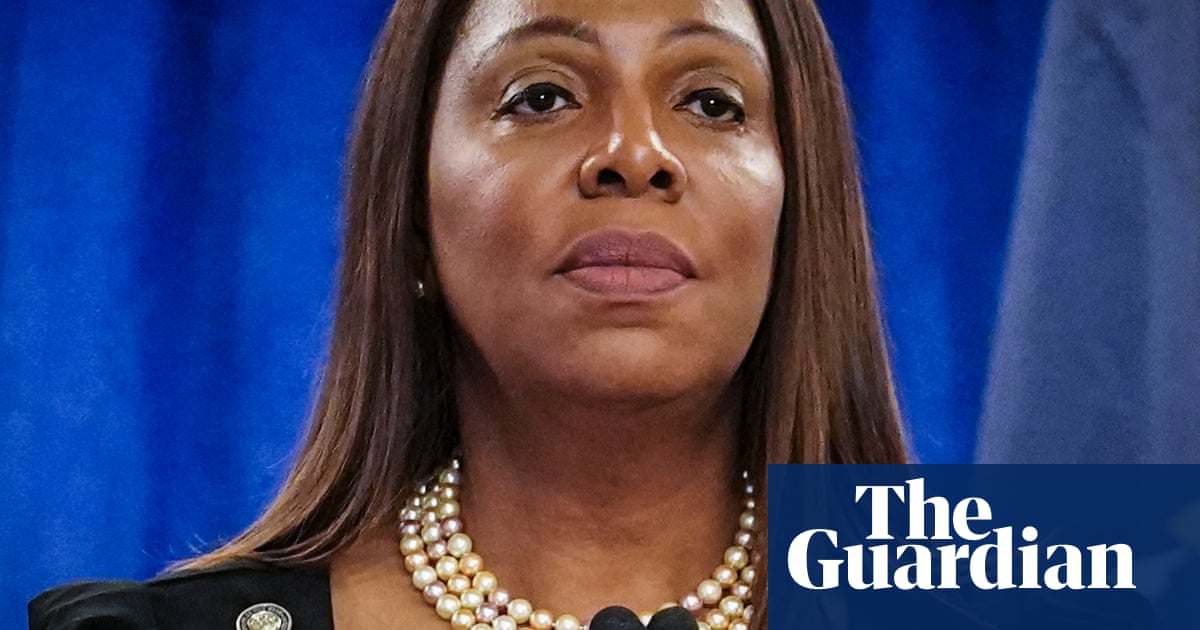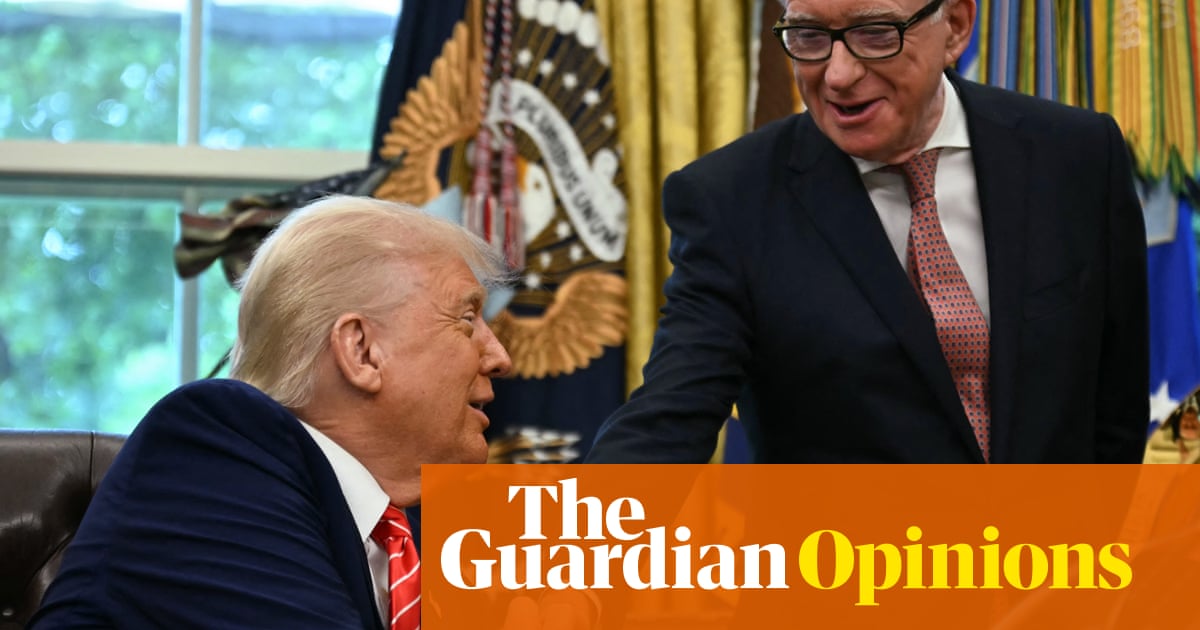A team of senior British trade negotiators has landed in Washington as talks over a deal between the two countries gather pace.
Officials from the business and trade department are in the US for much of this week, attempting to get an agreement signed before the planned UK-EU summit on 19 May.
Downing Street did not deny reports the deal could be signed as early as this week, although government sources said the recent announcement by the US president, Donald Trump, of film industry tariffs had proved a significant setback.
One person briefed on the talks said: “We have a senior team on the ground now, and it may be that they are able to agree something this week. But the reality is the Trump administration keeps shifting the goalposts, as you saw with this week’s announcement on film tariffs.”
Another said Trump’s threat of 100% tariffs on films “produced in foreign lands”, which could have a major impact on Britain’s film industry, had “gone down very badly in Downing Street”.
UK officials say they are targeting tariff relief on a narrow range of sectors in order to get a deal agreed before they begin formal negotiations with the EU over a separate European agreement. A draft deal handed to the US a week ago would have reduced tariffs on British exports of steel, aluminium and cars, in return for a lower rate of the digital services tax, which is paid by a handful of large US technology companies.
The Guardian revealed last week the Trump administration had made negotiating a trade deal with the UK a lower-order priority, behind a series of Asian countries. UK officials said they have been able to continue talks with their US counterparts despite that, describing the Trump administration’s approach as “chaotic”.
Officials from the trade department arrived in Washington this week hoping to reach an agreement on two outstanding issues, pharmaceuticals and films.
Trump has said he will impose tariffs on both industries, mainstays of the British economy, but has not yet given details.
This week, the US president said the US film industry was dying a “very fast death” because of the incentives other countries were offering to draw American film-makers, and promised to impose a 100% tariff on foreign-made films. Britain offers producers generous reliefs on corporation tax to locate their projects there, which help support an industry now worth about £2bn, with major US films such as Barbie having recently been shot in Britain.
Trump also said that he planned to unveil tariffs on imports of pharmaceutical products “in the next two weeks”. The UK exported £6.5bn worth of such goods to the US last year.
Keir Starmer, the prime minister, has ruled out reducing food production standards to enable more trade of US agricultural products, as officials prioritise signing a separate agreement with the EU, which is likely to align British standards with European ones.
Officials are racing to sign the US agreement before the planned UK-EU summit, at which both sides will set out their formal negotiating positions. Leaked documents revealed on Wednesday the two remain far apart on their demands for a youth mobility scheme, with Britain demanding that visas issued under the scheme should be limited in number and duration, and should exclude dependents.
EU ambassadors met in Brussels on Wednesday to discuss the progress of the deal. One diplomat said: “Negotiations are going well, the mood is still good but it is a bit early to see bold moves from one side or another.”
This week Starmer also signed an agreement with India after giving way on a demand from Delhi for workers transferring to the UK within their companies to avoid paying national insurance while in the country.
The concession has caused some unease in the Home Office, with Yvette Cooper, the home secretary, not having been told about it in advance.
It was also criticised by Kemi Badenoch, who accused the prime minister of bringing in a “two-tier” tax system. The Tory leader denied reports, however, that she had agreed to the same concession when she was business secretary.
The prime minister defended the deal on Wednesday, telling MPs at PMQs it was a “huge win” for the UK. Other senior Tories have also praised the deal, including Steve Baker, Oliver Dowden and Jacob Rees-Mogg, the latter of whom said it was “exactly what Brexit promised”.
British officials say they have been surprised at the willingness of the Labour government to sign agreements which have been on the table for years but previously rejected by the Conservative government.
With economists having recently downgraded the UK’s growth outlook, Starmer is understood to have decided to sign deals such as that with India, even though they do not include a number of British demands, such as increased access for services.
One source said the approach was to clinch a less ambitious agreement and use that to build a fuller economic partnership in the coming years.

 1 day ago
12
1 day ago
12
